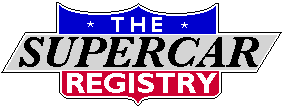

Dedicated to the Promotion and Preservation of American Muscle Cars, Dealer built Supercars and COPO cars. |
|
|||||||
| Register | Album Gallery | Thread Gallery | FAQ | Community | Calendar | Become a Paid Member | Today's Posts | Search |

|
|
|
Thread Tools | Display Modes |
|
#1
|
||||
|
||||
|
My friends and I are finishing up the restoration on my 1969 Chevelle SS 396/350HP convertible car. The big block 396 motor was rebuilt. I had it professionally done by a very good and reputable machine shop here locally. The machine shop assembled the "short block" and we assembled the rest, painted and put the motor in the car just this week.
Last night we fired the motor in the car for the first time and it was making a "God Awful" noise which we determined was coming from the valve train area. A brief overview of the engine rebuild is as follows: 10.5:1 stock new pistons, new rings, all new bearings, motor was balanced, line bored, cylinders honed motor tumbled and tanked, brand new forged crankshaft, brand new cam- stock 350 HP hydraulic style, all new valves and hardware for same, new rockers, pushrods and lifters. New oil pump- Melling high volume, new double roller timing chain, all new gaskets, original stock points distributor that was rebuilt. The valves were adjusted properly and double checked. The engine was primed on the engine stand and the lifters were soaked in oil prior to assembly. We broke the cam in even with the noise originally thinking at first that the valve adjustment had backed off and the rockers were loose. So we re-checked the valve adjustment and still had the noise. The noise sounded like a diesel engine, or a very loud solid lifter motor. It was a loud clicking noise coming from both sides of the motor. We removed both valve covers and found that oil was only "shooting out" from the pushrods on cylinders 1 and 7. The others were getting oil but not as strong. So we determined it to be possibly oil pressure related, however we had 70-75 lbs of oil pressure when we primed the motor and the oil pressure gauge was reading high when the motor was running. We double checked the relief spring in the oil filter adapter to ensure that was not a problem which it was not. We tested cylinder compression which was reading 180. The motor idles and runs nice in lieu of the noise. What we are thinking is that some of the lifters are not getting adequate oil pressure therefore they are not pumping up like they should which in turn is causing the noise. But what we can't figure out is why this is so.. I know there is an oil galley that allows the oil to travel to the lifters in the block. We thought maybe it was obstructed but the engine builder doubted same and said that he checked it when he was doing the motor and they were clear. Don't know if this makes sense either because cylinders 1 and 7 are getting sufficient oil through the pushrods into the rockers... We even had the engine builder listen to the noise and he was "stumped." Could it be that the block may be cracked in this oil galley????? Something is just not right and when it "stumped" both my friends who are excellent mechanics and the engine builder who is very good I really became concerned.. We are postive that nothing is rubbing against anything making the noise, it is definately in the valve train area.. The engine builder told us to pull the motor back out and send it to him complete because he wants to carefully inspect it and find out what is going and hopefuuly correct the problem.. He said he will run the oil pump and try to determine how well the oil is flowing through the block. This whole thing just made me physically ill last night especially after sinking a good chunk of $$$$$$ into this motor.... Has anyone else had this problem or have any thoughts on what the hell is going on with this motor.. I am beginning to think it is possessed  ..... .....Thanks.... Rich 
__________________
"This is Sheriff Buford T. Justice, I'm in pursuit of a black Trans Am, he is all mine so stay out of the way" |
|
#2
|
||||
|
||||
|
Most likely cam bearing related.

__________________
...................... John Brown This isn't rocket surgery..... |
|
#3
|
||||
|
||||
|
I say cam bearings installed wrong: the oil feed holes are not lined up properly with the oil galleys. Are the push rods correct? They can be restricted too, if not manufactured properly.
Can you make a quick video clip of the noise? Some of those double roller sets can be really noisy. The Cloyes double roller in my hemi has been making the same "rockity" diesel sound for 20 years now. |
|
#4
|
||||
|
||||
|
Cam bearings are a good place to start.. But I can't believe the builder would have done that.. But I guess anything is possible and we are all human and make mistakes.. The pushrods were listed as the correct ones via the part # on the box. We checked to make sure that they were not obstructed when installing them..
Unfortunately I am not that video/computer literate to video the noise and install it...  Rich
__________________
"This is Sheriff Buford T. Justice, I'm in pursuit of a black Trans Am, he is all mine so stay out of the way" |
|
#5
|
||||
|
||||
|
Rich;
What brand and part # are the pistons? Which heads (casting #) are on the engine? Did you check for dome to chamber clearance? Eric |
|
#6
|
|||
|
|||
|
Rich;
What kind of lifters did you install in the motor.? I had the same problem when I installed anti pump up lifters on my hydraulic cam and used 20-50 oil.The oil was not inflating the lifters and making a hell of a racket.I changed the oil to 10w 30 and it stoped. PJ |
|
#7
|
||||
|
||||
|
[ QUOTE ]
What brand and part # are the pistons? Which heads (casting #) are on the engine? Eric, here are pictures of the head casting numbers and the new pistons (Federal Mogul) with the part numbers... Everything is basically stock and there were no issues with clearance.. The lifters are just regular hydraulic lifters as far as I know...  
__________________
"This is Sheriff Buford T. Justice, I'm in pursuit of a black Trans Am, he is all mine so stay out of the way" |
|
#8
|
||||
|
||||
|
Rich;
Bad news...I think that may be your problem. Those pistons are the L78 style replacement pistons. While they are listed as "closed chamber" pistons, note that the chambers are not the same between rectangular port and oval port heads. The L78 pistons are known to just slightly hit the corners of the chambers on an unmodified oval port head. I've ran into this issue myself in the past, and another member on here ran into it a few years ago as well. Read this thread over on the Chevelle site. Eric |
|
#9
|
||||
|
||||
|
[ QUOTE ]
Rich; Bad news...I think that may be your problem. Those pistons are the L78 style replacement pistons. While they are listed as "closed chamber" pistons, note that the chambers are not the same between rectangular port and oval port heads. The L78 pistons are known to just slightly hit the corners of the chambers on an unmodified oval port head. I've ran into this issue myself in the past, and another member on here ran into it a few years ago as well. Read this thread over on the Chevelle site. Eric [/ QUOTE ] Boy, thats great news.. I hope this is not the issue.. Wouldn't there be more problems, or the motor would not run right if the piston was hitting??? Rich
__________________
"This is Sheriff Buford T. Justice, I'm in pursuit of a black Trans Am, he is all mine so stay out of the way" |
|
#10
|
||||
|
||||
|
Rich;
Normally the pistons don't hit very bad, just enough to leave witness marks in the domes that are maybe .010-.020" deep...but that's still more than enough to create a h*lluva racket when the engine's running. Needless to say this isn't good for the engine, so I would strongly advise against running it any further. I would advise discussing this issue with your builder before doing anything else. If there is any "good news" to the situation, it's that the problem can be alleviated by slightly relieving either the domes or the chambers at the point(s) of interference. Other than that, the only choice is to remove the L78 pistons and install the correct L34 style units with a smaller dome which is designed for the oval port heads. One other thing to consider is that the L78 pistons will give you close to 11-1 compression, so you'll have to run good gas should you decide to leave them in. Give me a call monday if you wish and I can give you some more details. Eric |
 |
|
|